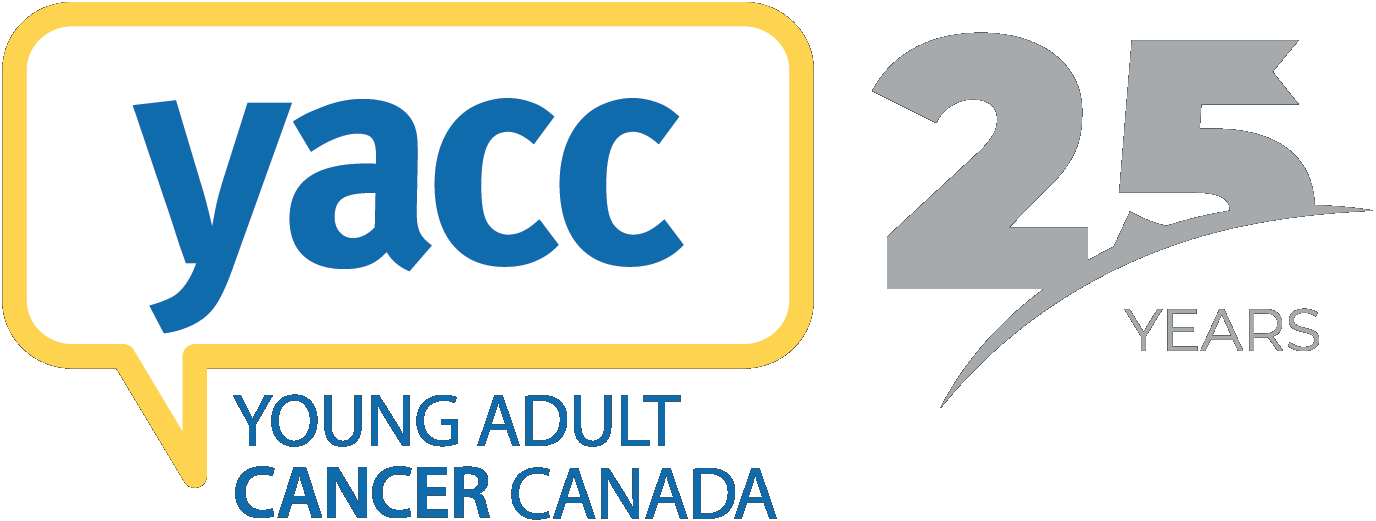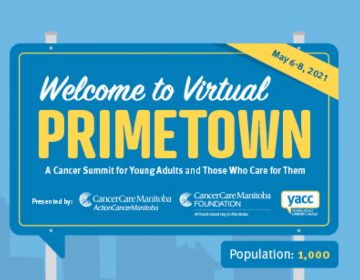By Ryan Blenkiron
I have always been a sharer. If you lend an ear, I’ll pour into it. With the likes of early blogging and social platforms like Livejournal or MySpace, I’ve shovelled large pieces of myself online for others to “hear” for a long time now. In essence, I’ve been sharing my stories for a couple decades. Each physical, emotional, and mental burden I have encountered has been lightened significantly by talking or writing about it. I’m privileged to have found this out in my teens. Until the last few years, my story sharing was always for this self-soothing reason.
More recently, I’ve lived through traumas during which I couldn’t always put my story into words — either I was too raw, or too exhausted. In lieu, I read and listened to others’ stories and it helped almost as much as telling my own. These stories inspired forgiveness, compassion, advocacy, healing — and above all else — a sense of belonging.
Not surprisingly, cancer has been especially hard to process. I personally shared my journey through a semi-private Facebook group, primarily to self-soothe as I knew it had the power to do so. Along the way, I found YACC and listened to the stories therein — each online question, rant, video and profile, each interaction at a face-to-face event weaving a deeper story of the young adult cancer experience. It helped me to feel that even though I’m in remission, even though my treatment didn’t include a barrage of radiation or surgery or stem cell transplant, and even though lymphoma stage IV is quite different than another cancer’s stage IV, I still felt the universal traumatic effects of cancer with my fellow YACCers. It was a place that, through collective storytelling, I felt I could be myself and be understood and accepted.

Beyond YACC, I’ve scoured Medium.com, binged podcasts like Soar Above Cancer and Sickboy, read books such as Between Two Kingdoms by Suleika Jaouad, attended webinars through Lymphoma Canada, and I follow countless fellow warriors on socials to witness all sorts of storytelling.
As an exciting bonus, our anecdotal experiences are driving the collection of real data around the psychosocial effects of having cancer as a young adult. During a keynote at the inaugural Primetown (a cancer summit co-hosted by YACC, CancerCare Manitoba, and the CancerCare Manitoba Foundation), Dr. Brad Zebrack highlighted the importance of storytelling as it “is an active quest to make sense of a mystery/challenge,” supporting this with researched insights he’s come across since his own young adult cancer diagnosis. The YAC Prime study has been churning out findings that validate our stories and can be used to improve the AYA cancer journey. For example, the study has found that connectedness to the YA cancer community is associated with greater post traumatic growth.
I understand that I’m privileged to find myself in several others’ narratives. The landscape is not perfect, however, and there are several community members under-represented in stories about the young adult’s cancer experience. We need more out there. If you haven’t seen something yet that speaks to you, I strongly encourage you to share your own story. I promise there will be others that find it, and need it to help them heal.

Today, with both innovation and the social incubator of a pandemic, the volume of storytelling is growing exponentially. There are more opportunities than ever to not only find stories that match your experiences, but also to tell your own. Here are some ways you can put yourself out there:
- Fill out a YACC profile by contacting [email protected]
- Start a Facebook group, blog, YouTube channel, Instagram hashtag, or a TikTok account dedicated to your journey
- Keep it simple and create an email list of your closest contacts and email it when you have something to share
- Create art and display it somewhere like your cancer centre or a local coffee shop
- Write a short story and submit it to a cancer-focused publication. Several, such as Elephants and Tea, look for submissions regularly
- Be the subject of a photoshoot, or tell your story through impactful photos
- Write a children’s book
- Offer your contact information to your healthcare team so they can direct other young adults to you
- Guest star on a local radio show, local news, or a podcast
- Make up your own way to tell your story!
Whether you’re a sharer, a listener, or both (like me!), I hope I have helped move you to share your unique experiences with the cancer community.
Every cancer, every stage, your story matters.









